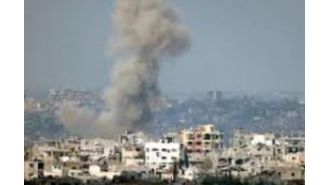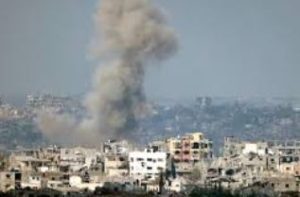Many Americans are imprisoned in Pakistan due to its crackdown on dissent.
U.S. appears to be doing little to help Americans caught up in Pakistan's crackdown on dissent despite helping set it in motion.

The political turmoil in Pakistan that began when former Prime Minister Imran Khan was removed from office in 2022 has resulted in a crackdown on Khan's political party, the Pakistan Tehreek-e-Insaf. This campaign is characterized by a wave of killings and detentions of Khan's supporters, including journalists believed to be associated with his movement.
The effects of this crackdown have been felt far beyond Pakistan's borders, with the detention of American and British citizens and residents in the country since May, when a series of demonstrations against the military took place. The Pakistani government has been accused of utilizing political charges to arrest thousands of people, and at least one dual citizen, Khadijah Shah, a Pakistani American fashion designer, is known to be in the military's custody.
In response to questions about her case, the U.S. government announced that it had asked for consular access to Shah from the Pakistani government. However, the U.S. has said little about her fate and whether any other American citizens may be detained in Pakistan.
Shahzad Akbar, formerly a legal activist in Pakistan and later an anti-corruption minister in Khan's government, now lives as a resident in the United Kingdom. Akbar stated that many more Americans and British Pakistanis are likely in prison in Pakistan due to the crackdown, but their families are afraid of coming forward due to possible repercussions against their loved ones.
He further added, "The line that we have heard from foreign governments is that what is happening is Pakistan's internal matter, even though many of those detained have been foreign nationals of Pakistani descent. But when you know what is happening is political repression of dissidents, your own intelligence confirms this, and your citizens are impacted, you cannot merely dismiss it as an internal matter."
The U.S. government declared that the safety and security of American citizens overseas is their highest priority, and they are in contact with Pakistani authorities and expect fair and transparent treatment for all detainees, in line with Pakistan's laws and international obligations.
Akbar himself has been impacted by the crackdown, as his brother in Pakistan was arrested by security forces this May in an attempt to pressure him to come back to the country from the United Kingdom. Akbar refused the demand to return and testify against Khan, and his brother remains in custody without charge.
The U.S. and British governments have labeled the crisis over Khan's removal an internal affair of the Pakistani government, even as the crackdown on his party has extended to all of Pakistan's civil society. Human Rights Watch has criticized the Pakistani government for the detentions, and reports have emerged of torture of detainees in custody.
Moreover, the Intercept recently reported on a classified Pakistani government cable that detailed a meeting between U.S. diplomats and their Pakistani counterparts, in which the U.S. threatened to isolate Pakistan if Khan remained in power and promised rewards should he be removed.
Since the no-confidence vote was passed, the Pakistani economy and political system have been thrown into an escalating crisis, culminating in the country devolving into a police state. This week, Pakistan's president denied signing off on a set of laws granting sweeping new authoritarian powers to the military, adding an unexpected twist to the saga.
The detention of Pakistanis with dual nationality and residency is of particular significance given the apparent role of the U.S. government in helping trigger the crisis. It is unclear how many foreign nationals are in custody, but their plight is a reminder of the power of governments to affect the lives of their own citizens, both at home and abroad.
5 Views










